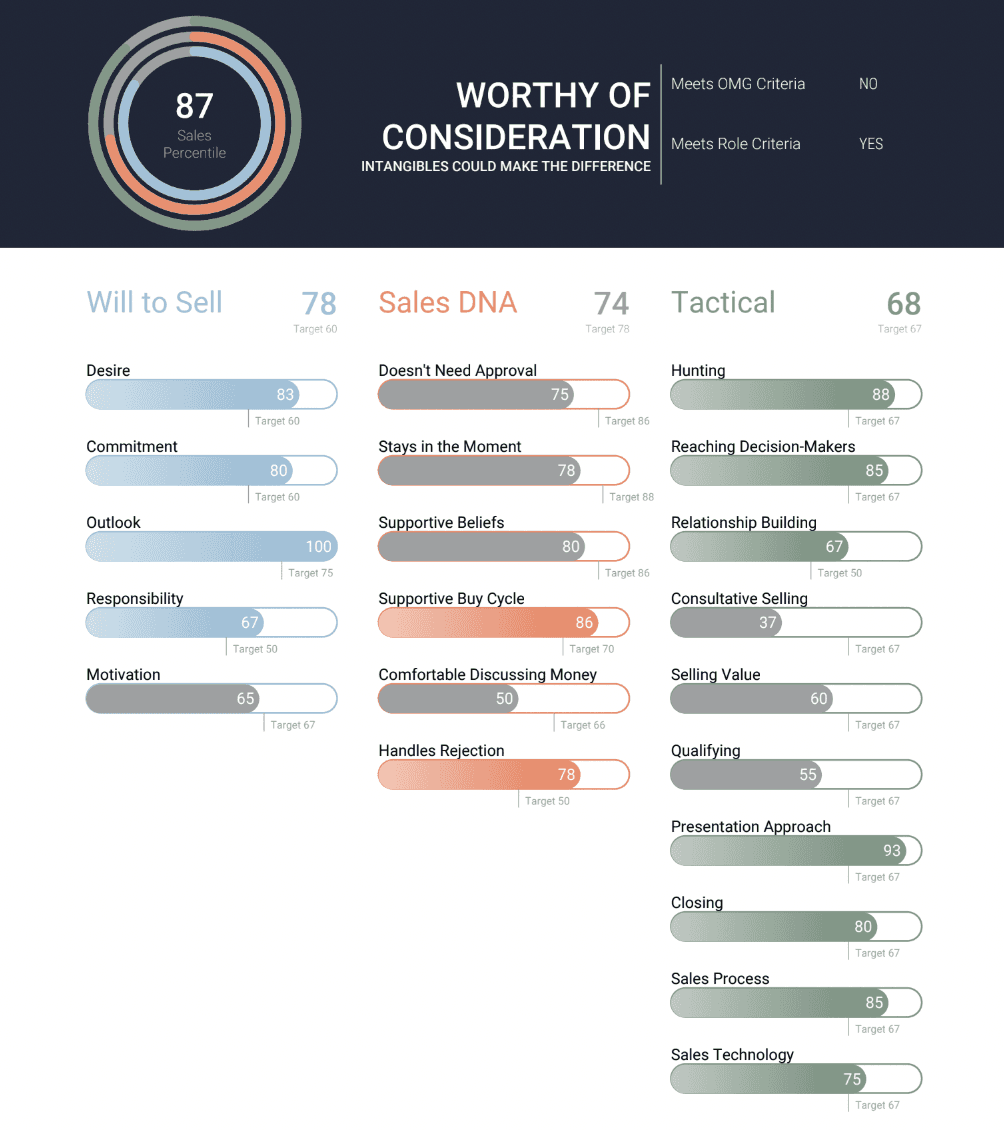Why smart sales teams always recruit and build a bench. - Even when they’re fully staffed
Share
5
min
What is your favourite team sport? Football? Rugby? Handball? Whatever the sport, when you watch a match, for a team of 15 players, do you only see 15 players? Nope.
There's always a bench of substitutes. Just in case, during a match or during the season:
A player gets physically tired
A player is showing signs of a mental fatigue
A player gets injured
One or more players become too complacent
Injuries, complacency and fatigue also come into play in sales.
Having people on a bench is essential for a sport team to function properly. Well, it's the same for sales. A sales manager can also find himself in similar situations:
A salesperson who turns out to be inappropriate post-recruitment
A salesperson who becomes too comfortable
A sales rep who resigns
But, unfortunately, too many sales organisations don't have a bench. Obviously, you can't have employees paid to do nothing or very little. But rarely - if ever - sales leader have a constantly renewed pool of candidates from which to draw.
Without a bench, when a sales rep leaves two things happen:
There is a need to quickly fill the role rather than choose the best sales person. Leading to a new hire that isn't as good as possible
There is an empty seat for few weeks or months while a replacement is being searched. This has typically a substantial impact in revenue
And why is that? There are several reasons:
Sales managers are too busy to make sure recruitment is an activity that is constantly ongoing
The process takes too much time, for example meeting sales people who are not actually worth the effort
Managers manage emergencies, not important topics like sales hiring (the Eisenhower's list)
Managers too often don't know how to recruit and their process is not scorecarded for this very unique function

Three simple approaches to building a bench without tiring yourself out
The reality is that sales recruitment is like prospecting. It's important to always look for new candidates. But how does one ensure that the approach is not time-consuming in order to have a bench?
A constantly refreshed job offer: At the top / start of the process, an attractive, up-to-date offer is essential. And an offer that attracts A-Players. Not B or C players. Actually one that signals B or C players : "No need to apply"
An assessment of sales skills before interacting with the candidate: Too often - if not nearly always - companies we talk to have a process that includes a conversation with the candidate at a very early stage and a selection fronted by a CV. This is a huge mistake. For many reasons.
For a start, the person in charge of recruitment, HR, TAM or whatever, might not be familiar with the challenges of sales and its complexity. So they might not ask the right questions. Decision-making bias also leads to bad decisions.
Questions asked to candidates are often about assessing technical aspects or salary levels or a previous employer being similar.
Not about the required sales mindset. Not about ticket size sold. Not about the hunger to grow skills to aim for excellence. Which are the real success criteria.
So it's key to start with a dedicated sales assessment to decide whether or not to meet the candidate. I recommend using a purely "sales" approach, not DISC-type evaluation that are not predictive of sales performance. An example below, you can download examples here or you can contact us for more information. With a personalised assessment (an SDR, a sales manager or an account manager are not assessed in the same way), if the candidate is not recommended, no time is wasted. If they are recommended or are worth meeting, it's, well, worth meeting them.

10 minutes: 10 minutes. This is the time needed to decide whether a candidate should be interviewed. A robust scorecard should be used to validate both hard and soft skills. Pro-tip. NEVER do this interview by video. This avoids getting caught up by biases in your decision making process...
This powerful approach enables you to build up a pool of high-potential sales people and avoid "panic" situations where you need to recruit quickly and avoid recruiting in a hurry.
This is what top sales teams do. They build a sales culture and sales systems, they understand nothing is easy. No shortcut. But they get the results they truly deserve.
Is your vision to build on a top sales organisation. And you wonder the best practices to roll-out, be it for sales leadership, to have top B2B sales players or have a world class sales recruitment process? Get in touch, happy to discuss to see if we can help.
Subscribe to our newsletter

Hervé Humbert
Founder




